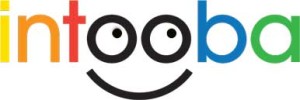In integrating collaborative work in our approach to K-12 education, we are teaching students the benefit of listening, learning from others, coming to consensus on ideas, and other group dynamics. These are all essential skills in group problem solving exercises in school, and in adult project based work. What we should not lose sight of is both valuing the individual as a contributor, and building personal communication skills thereby promoting effective group dialogue and collaboration. It takes a very skilled teacher to nurture the individual as a person of abilities, aptitudes, and evolving capacity while at the same time teaching effective group dynamics. Productive group work is predicated upon individual skills in communication, and group skills in collaboration. We want children to know that their opinions and observations are highly valued, we want them to have the skills to communicate them effectively, and we develop collaborative skills to make project based learning effective.
In early development of these skills, it may well be the case that using physical manipulatives in the classroom facilitates the development of communication skills across curriculum topics. As personal skills in, for example, vocabulary, persuasion, reasoning, and advanced thinking develop, children could use manipulatives to assist them in communicating their ideas with peers. This is evidenced in the example of Kim Haines, 4th grade teacher at Dawson School in Lafayette, CO who used the INTOOBA Construction Kit in developing communication skills in listening, giving directions, providing clarification, and in either being a giver or receiver of information in her math class:
Blog HERE
Essentially, teachers can observe individual thinking and development of these essential skills through the use of manipulatives while also noting the child’s functioning within a collaborative setting. Children here are supported in the learning of specific collaborative language through the use of their hands.

